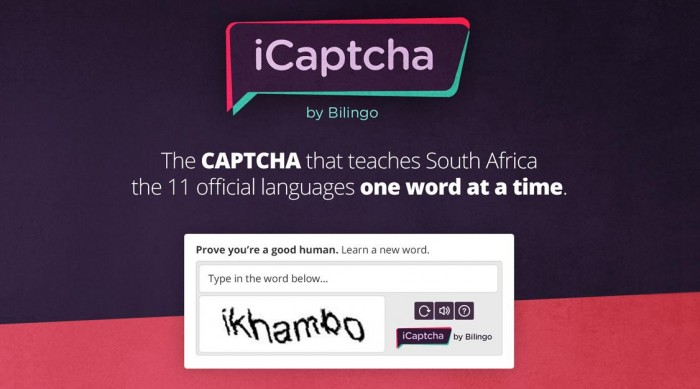
A “Completely Automated Public Turing test to tell Computers and Humans Apart” or a CAPTCHA is a type of test used in computing to protect websites against bots by determining whether or not the user is human.
A CAPTCHA usually prompts the user to type a random selection of letters and numbers concealed in a distorted image that appears on the screen. But South African digital agency Native VML saw an opportunity to use the time it takes people to complete a CAPTCHA to teach them a new language. The result is iCAPTCHA.
Instead of being prompted to type a randomised sequence of letters and numbers, iCAPTCHA prompts the user to type a word from one of the 11 official South African languages. When you pass the test and prove that you’re a human, the iCAPTCHA translates the word into English.
The aim is to benefit the end-user directly by teaching them a new language. Native VML says “if people want to learn more, or know a word already, they can simply try another one”.
The iCAPTCHA has been created in collaboration with Bilingo, a free South African multilingual online dictionary. The iCAPTCHA software is open source and easy to install.
iCAPTCHA is similar to Luis von Ahn’s reCAPTCHA system, which is designed to digitise books. When Von Ahn heard that there were 200 million CAPTCHAs typed a day, he harnessed the programs capacity to get users to type words to assist in digitalising millions of books.
Despite this iCAPTCHA is an interesting projects designed to build proficiency in languages and as such foster meaningful and multilingual interactions South Africa.






